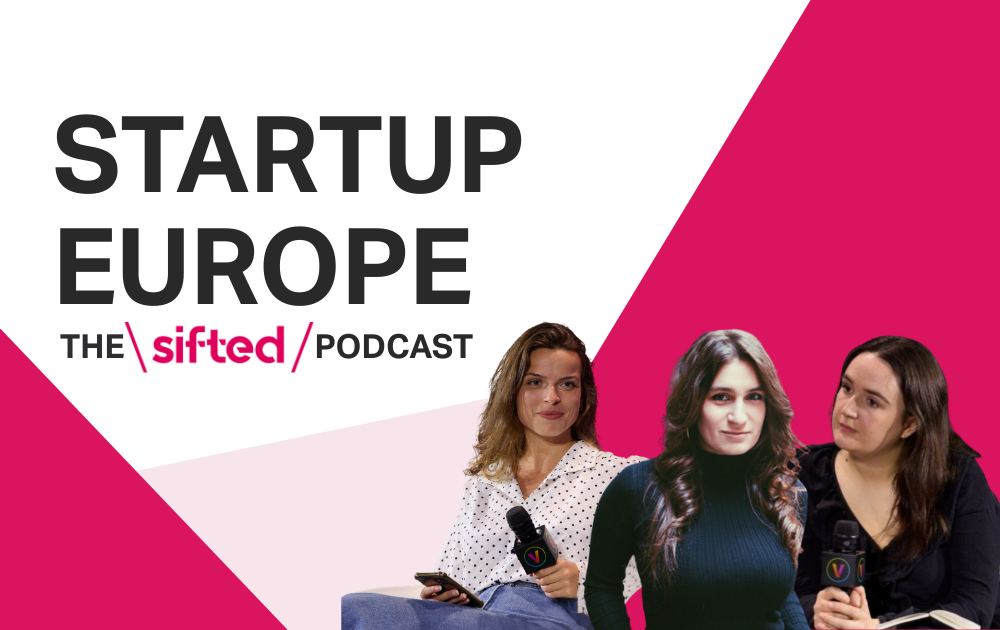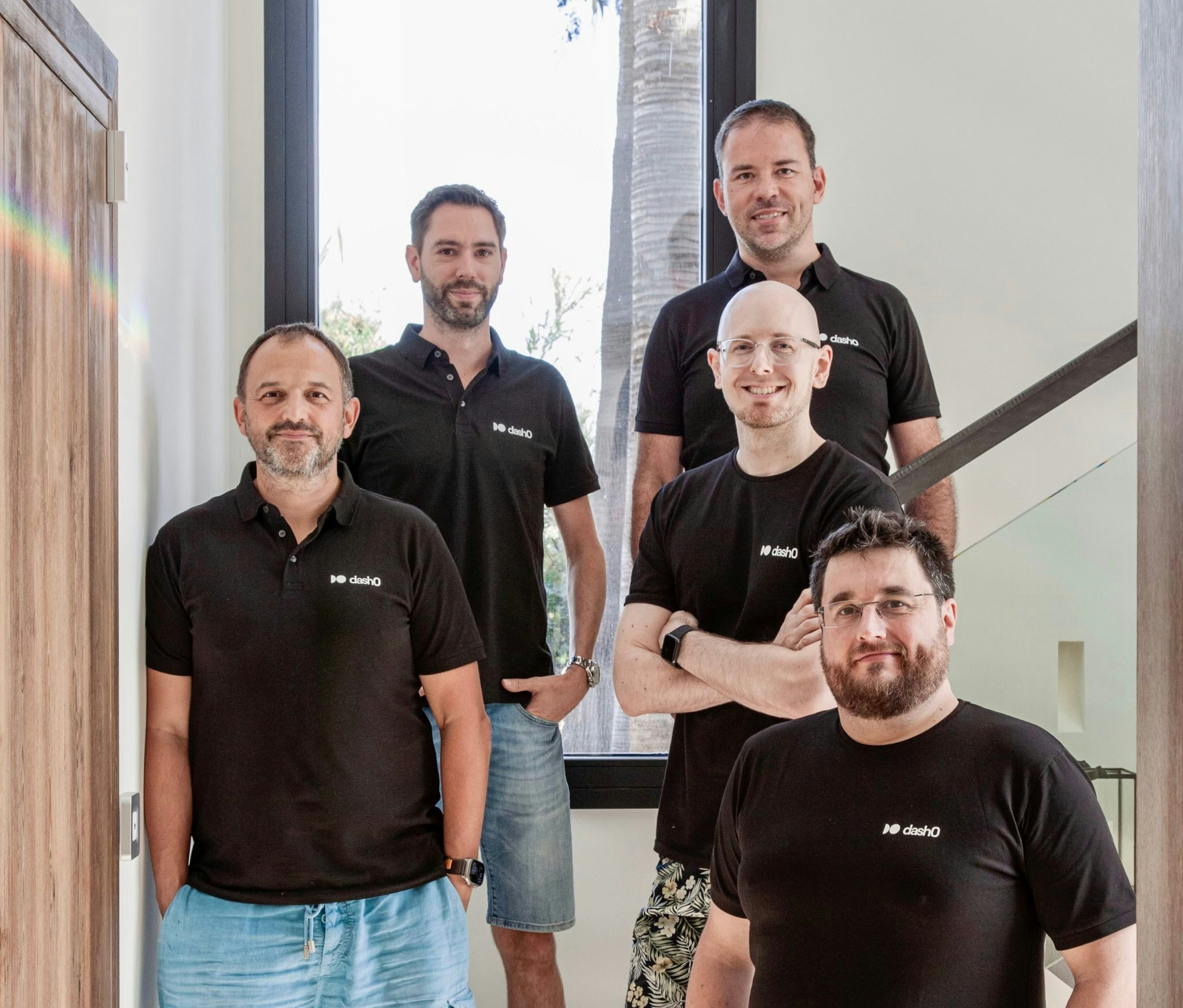Every year tens of thousands of entrepreneurs pitch investors with their tech startup ideas. We at Sifted asked ourselves: could a robot do any better?
So for a bit of fun we asked GPT-3, OpenAI’s powerful new language generator, to pitch us some ideas for transformative new tech companies in the fields of fintech, data, digital health and software.
Note: these pitches were not edited at all. All we did was give GPT-3 some example pitches and the AI did the rest with uncanny efficiency.
Below we have mixed GPT-3 pitches up with some real startups in the same sector, just to make it interesting for our readers. Can you tell the difference? And which ones would you invest in? Answers at the bottom.
Please comment below or email michael@sifted.eu and we will print the best replies. For more about GPT-3 and how these were written, please read our editor’s note at the end.
GPT-3 or a real startup? Fintech
a) FinanceWise is changing the way people think about their finances. They are building the first ever financial health engine. This puts a complete picture of your finances at your fingertips. It also monitors your spending, and gives you a simple way to fix your finances.
b) Giftcoin aims to change the relationship between charities and donors, making giving more transparent and effective. By using blockchain technology, Giftcoin will give donors a better idea of where their money is going, and charities a better idea of where it is needed.
c) Golden Tickets is an online knowledge-sharing platform that helps consumers make better financial decisions. It works by providing people with the tools and knowledge to make informed financial decisions and become better savers.
d) Insurami is re-inventing the process for leasing office spaces, unlocking £200bn in the US, UK and Europe alone. Our proprietary risk model enables landlords to vet customers in seconds, and lower upfront deposit costs by 90%.
GPT-3 or a real startup? Data
a) Waste Labs runs a proprietary AI platform that enables waste collectors and cities to analyse and improve their collection system. By creating a digital twin of the system, the platform highlights inefficiencies, and suggests improvements, helping to reduce collection costs by 10% – 40%. The company already counts a global waste collector among their clients.
b) NeoWize’s AI platform tackles one of the biggest challenges in the industry: the lack of skilled inspectors that can analyse the quality of raw materials. The company’s AI model learns from experts and can be used to measure the quality of any material in a repeatable and scalable way.
c) Avva is building the most efficient global healthcare platform. With more data on doctors, hospitals and patients, Avva will increase efficiency of providers and services. It will help doctors gain more time with their patients, and help hospitals get better paid. Avva’s AI steering can help providers decide when to refer a patient to a different hospital to get the best price for that service.
d) Hound provides a digital assistant to help you find the best home care for your loved ones. By combining the language recognition technology of Hound alongside our on-demand platform, we’ve helped parents find the best care, and nurses find opportunities to work from home.
GPT-3 or a real startup? Digital Health
a) Nanopore uses DNA sequencing to allow anyone to sequence their genome. Our founders are scientists who have devoted their lives to making DNA sequencing happen. We’ve changed the world by making DNA sequencing orders of magnitude cheaper and faster. We’ve sold the world’s first desktop DNA sequencer. We’ve sequenced the world’s most complete human genome by hand. We’ve launched the world’s first nanopore-powered lab. But we’re just getting started.
b) Peloton Therapeutics is harnessing the power of machine learning to bring new treatments to patients faster. We are developing a drug portfolio in partnership with one of the world’s largest pharma companies. Our ambition is to improve treatment outcomes for patients and bring new therapeutic advances to market faster.
c) myLevels uses data from Continuous Glucose Monitors and Bayesian Machine Learning to model the very personalised impact that food has on people’s bodies. We help you see and understand what foods are best for your unique metabolism. People using myLevels for weight loss have dropped >10kg.
d) InControl Medical has developed a platform for continuous, real-time control of medical devices for patients at home. We also offer a cloud-based solution with a user experience designed for patients and carers. The platform and cloud solution are designed for devices on the market today and future devices.
GPT-3 or a real startup? SaaS
a) Cloudreach’s team of technical experts enables enterprise organisations to architect, migrate and manage applications across public, private and hybrid cloud environments. Cloudreach’s unique offering enables businesses to realise the cloud’s full potential by providing a single point of contact and accountability for every application, regardless of where it is hosted. Today, they manage over 12,000 cloud applications and processes for thousands of customers across 100 countries.
b) Narus is an intelligent industry-wide knowledge management platform for lawyers. With our proprietary knowledge graph and by harnessing the power of machine learning, our solution can distinguish in daily communication what is legal know-how and what is not, and then automatically categorise and logically connect hundreds and thousands of knowledge nuggets. This turns a burdensome and dull process into a real breeze.
c) Metapop is a machine-learning platform to help publishers convert web visits into revenue. Metapop can also help advertisers to optimise campaigns on a real-time basis. In the future, MetaPop will provide targeted content based on the visitor’s preferences, and thus increase overall engagement.
d) Bowlie is a free, secure alternative to the WhatsApp “status” feature for mobile and browser. We’re challenging Facebook by creating a more transparent social platform. With Bowlie, everyone can create an open and verified identity, and communicate with anyone across the world.
The fintech pitches were all written by GPT-3 apart from Insurami. The data pitches were all written by GPT-3 apart from Waste Labs. The digital health pitches were all written by GPT-3 apart from myLevels. And the SaaS pitches were all written by GPT-3 apart from Narus.
Editors note
All text for the human-made entries were taken from the website of the company builder Entrepreneur First. We chose EF companies because they are European, early-stage and all presented on the website in a similar format.
We picked 5 EF companies for each category and fed them into Open AI's GPT-3 system with the help of Sid Bharath, the CEO of Broca, an AI company that generates ad copy and other forms of marketing content (a hot new sector).
GPT-3 learned from the entries and the wider web and came up with its own names of startups and ideas in a similar style. Originally we put in 5 real companies and prompted GPT-3 to make us another 5. But the result was a bit long for readers to wade through. But if you want to see the full unedited set, you can see them in this doc here.
What amazed us was how plausible these startup ideas the GPT-3 came up with really were. Sure, no VC would invest in any of these with just a blurb. But for those who want an idea of a business to start, they could do worse than dropping GPT-3 a line.
Matt Cliffford, the cofounder of EF, said: "This is exactly the sort of task at which GPT-3 excels, so it’s not surprising that it’s very hard to tell which descriptions are real and which aren’t. Fortunately for founders, actually building a company is still a long way beyond any model’s capabilities... but I expect we’ll be funding a lot more NLP [Natural Language Processing startups] over the next couple of years.”



